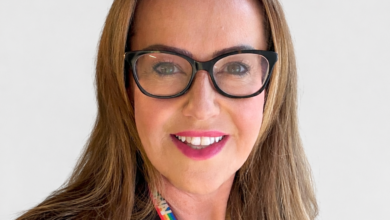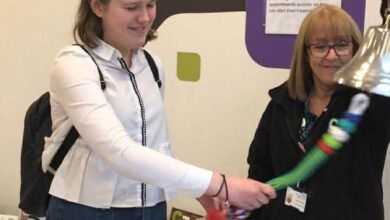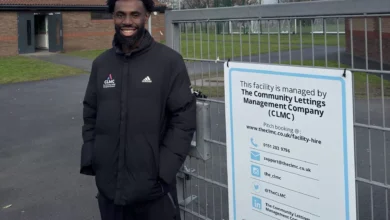Liverpool woman with stage 4 blood cancer is running the Berlin Marathon this month
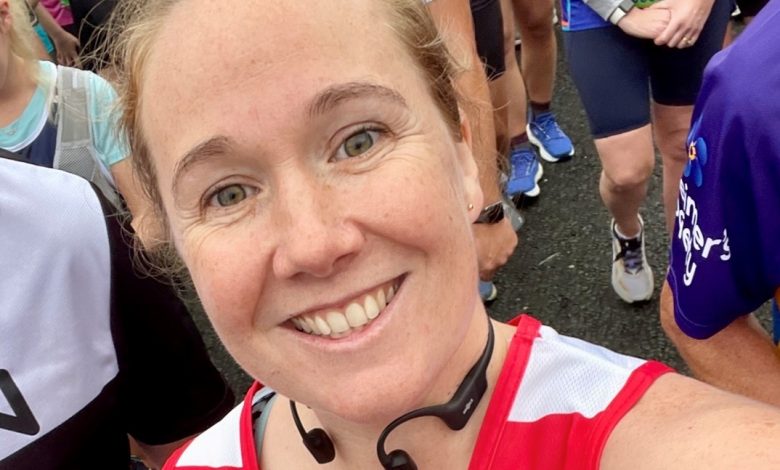
As a frequent runner and former outdoor instructor who was rarely ill, Alison Munroe, 42, from Hunts Cross in Liverpool, couldn’t understand why she had started feeling so exhausted all the time.
Sleep didn’t make it better. She just felt wiped out all the time and was also getting bugs that seemed to last forever and niggling little injuries that wouldn’t heal.
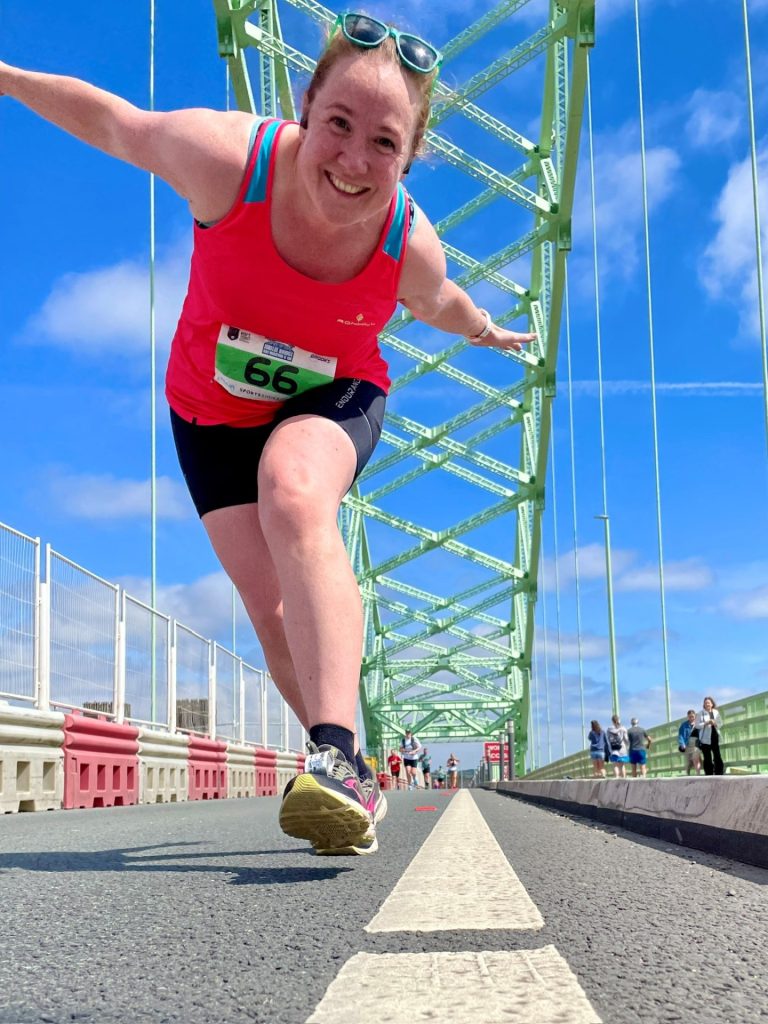
When she went to the GP and blood tests showed she was anaemic, many people would have assumed that was the answer. Perhaps her body was changing now she was in her forties or she was having heavier periods than previously?
Alison had a feeling there was more to it, however. Although daily iron tablets helped with the anaemia, she still felt extremely fatigued, was bruising easily and just didn’t feel like herself. Despite a healthy balanced diet, her nails were peeling and her hair was falling out more than usual.
After more visits to the GP, she was referred to Liverpool’s haematology faster diagnosis service, which is run jointly by The Clatterbridge Cancer Centre and Liverpool University Hospitals to diagnose or rule out blood conditions in people with unexplained symptoms.
It means people can have specialist blood tests, a CT scan and/or ultrasound, bone marrow tests and a lymph node biopsy, if needed, either on the same day or within a short time of each other.
“Then I went to see the consultant at The Clatterbridge Cancer Centre to get my results,” Alison recalls. “I’d been googling like mad so I wasn’t surprised when he told me it was a rare type of non-Hodgkin lymphoma called Waldenström’s macroglobulinaemia. My symptoms just seemed to fit and I felt like finally I had an explanation for how I had been feeling.”
Unlike many types of cancer, Waldenstrom’s macroglobulinaemia – or WM as it’s often known – can develop slowly so people might not need any treatment for months, years or even decades in some cases.
It is caused when a type of white blood cell called a ‘lymphocyte’ becomes abnormal. As these abnormal cells multiply, they build up and there are fewer healthy blood cells to help the body fight infections or carry oxygen. The abnormal cells – known as LPL cells – release more than is normal of a protein called immunoglobulin M (IgM) that can be picked up on blood tests.
Although Alison’s cancer was causing symptoms and she had cancerous cells throughout her body, blood tests and scans showed that she didn’t need any treatment immediately.
Instead, she has regular tests and check-ups from her clinical team at The Clatterbridge Cancer Centre who are monitoring her closely so they can begin treatment when her cancer reaches that stage. This is often known as ‘watchful waiting’ or ‘active monitoring’, and is the recommended approach for many slower-growing cancers.
“I always thought that if you have cancer, you need treatment, you look ill and you lose your hair,” says Alison. “One of the hardest things for me has been explaining to people that, although I look well, I have blood cancer, I have symptoms of cancer and I’m not ‘healthy’.
“Everyone wants to know when I’m starting treatment and I have to explain that my cancer isn’t like that but I do still have cancer. It’s also been challenging mentally for me. I’ve always been healthy but the other week I got a cough and my temperature went up to 42˚C.
“Usually I’d just take some cough medicine and take it easy for a few days but I rang my team at The Clatterbridge Cancer Centre and they told me I needed to go to A&E straight away because I had blood cancer and an infection could potentially cause sepsis. You just don’t realise things like that until you have cancer.”
It was getting diagnosed with cancer that inspired Alison to make the most of things before she needs any treatment – and she plans to fulfil one of her ambitions in a few weeks’ time by completing the Berlin Marathon on 29th September 2024, the second step in her goal to complete the six World Major Marathons.
“Cancer has given me a kick up the backside,” she says. “I know physically I can complete a marathon because I did the London Marathon a few years ago before the exhaustion. I just need to make it to the Brandenburg Gate in time because the Berlin Marathon has a cut-off time and if you don’t hit the timings at different points, you don’t get to finish.”
Alison would encourage anyone with symptoms they can’t explain – or who feels that something in their body just isn’t right – to go to their GP to get it checked out. She is particularly keen for women and younger people to advocate for themselves.
“It’s a big thing for me,” she says. “Cancer isn’t always the first thing that jumps to mind when people are younger or you’re a woman in your forties or fifties.
“It’s easy to assume anaemia is just because of your periods or that symptoms like night sweats and tiredness are down to the menopause when actually they can also be a symptom of many blood cancers. It could be your periods or the menopause but don’t be afraid to ask for tests or a second opinion if you think it’s something else.”
Dr Jeff Smith, Consultant Haemato-Oncologist at The Clatterbridge Cancer Centre, who has been part of Alison’s clinical team, said: “People often assume ‘blood cancer’ is one condition and that anyone who gets diagnosed needs intensive treatment right away.
“In fact, there are many different types of blood cancer and some people do not need treatment, or when they do so, it can be after several years. That’s why it’s so important for us to care for each patient as an individual and look at what’s right for them, whether they need treatment immediately or are on ‘active monitoring’ like Alison.
“Alison is a fantastic example of someone that you would never suspect is living with blood cancer. We are all cheering her on in her preparations for the Berlin Marathon.”
For more information, contact Emer Scott on emer.scott1@nhs.net or 07387 546086 or the Communications Team on ccf-tr.communications.team@nhs.net.



